Preparing for a mountain race
How can you go about preparing for a mountain race if you happen to live somewhere far from the mountains, have a busy full-time job and family commitments? Here’s my story of OCC!
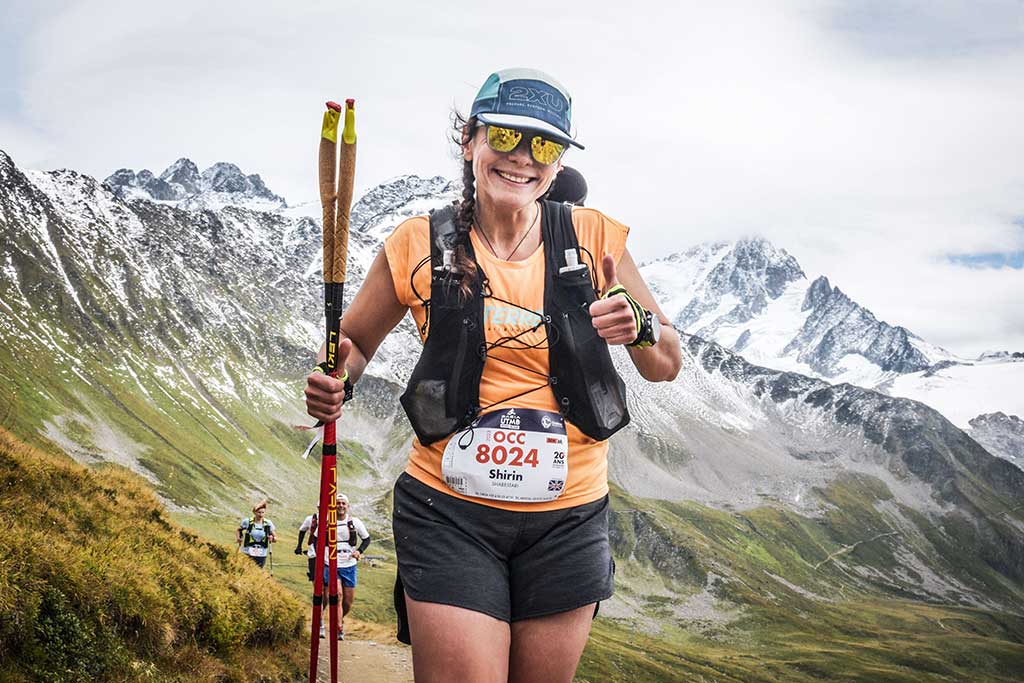
As winter approaches, many of us look ahead to the new year and plan new races and adventures. December brings the time to pre-register for one of the world’s most popular and prestigious races in the trail running scene. The UTMB draws in large crowds to the heart of the Alps and the picturesque town of Chamonix. It is an ordeal to get to that start line with its system of qualifying races, earning stones (points you need to enter a race, each stone equals one ballet entry), and the ballet itself. It also has a history of controversy and has recently – rightly so - been at the centre of criticism from the running community worldwide due to its choice of sponsorship by the car manufacturer Dacia, the biggest manufacturer of SUV cars. The more environmentally conscious runners also dislike the fact that UTMB encourages people to travel to earn ‘stones’ as there is only a selection of international races that will grant you the necessary stones, with UTS being the only one in the UK.
Recently it sparked another wave of anger and criticism with the way it entered the Canadian running scene, pushed the well-loved and respected Gary Robin’s local race out of the picture to introduce their new almost identical Whistler race. UTMB (particularly after it was bought by Ironman) seems to be driven by profit and has unfortunately brought about a degree of exclusion, making it harder for people who are not financially well off to qualify, let alone enter its races. That said, it is hard to deny that it is an incredibly special event in an incredibly beautiful area of the Alps and therefore a dream race for many.
How it started for me
I come from a mountaineering background. I grew up hiking and climbing in the high mountains of my home country Iran, particularly in the Alborz mountain range, home to many 4000m peaks. The highlight of my expedition life was climbing Damavand, the 5671m dormant volcano a couple of times, first as a personal challenge and later as part of my job leading expeditions to the peak through my company Persian Pursuits (now dissolved). I climbed in the Alps too (Mont Blanc, Moench, Grossglockner etc) and took up climbing indoors as well. A change of personal circumstances and jobs meant I switched from long expeditions to shorter trails and mountain runs. I could get around the mountains quicker and be back to my children and day job. I started my trail running journey back in 2019 with the awesome Mavericks and immediately found a new passion. Running out on trails and mountains became my thing.
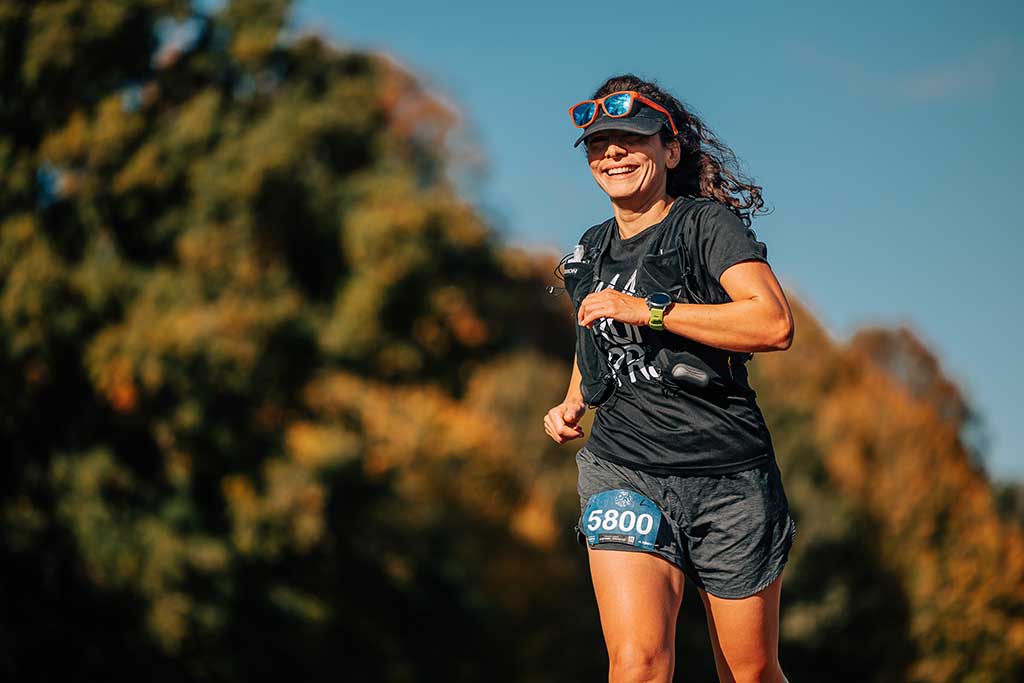
Finding your strength
After two years of many half marathons and a couple of marathons, the time was right to try ultras. As a climber, I always wondered how I would do in mountain races where the trails are technical. I thought that might play to my strength. I chose UTS50 as my A race, Maverick Exmoor ultra as my B race, and another coastal marathon as my C race - each as a training race for the next. When I lined up for UTS50 in 2022, I felt nervous. I found myself in a pool of men, with large quads and fancy kit (there were only 96 women out of over 700 entrants). I quietly made my way to the back of the pack where I normally would end up in races and kept going over the cut-off times. However, I found myself moving up the ranks and it was on the technical muddy and rocky descents and the scramble up Y Lliwedd where I made the most time. I was right. I was better at the more technical stuff! I ended up in the top half of that race. Yay, a firm middle-packer in a tough mountain race in the UK. This was it. I am better at mountain races than runnable trails.
OCC
UTS50 qualified me for OCC, It also gave me two stones which equals to two ballet entries. I thought to myself, well let’s just give this a go now that I have the stones. OCC (Orsières, Champex, Chamonix) is the last quarter of the full UTMB race. It is 50km from Orsières in Switzerland to Chamonix with about 3400m elevation. I had been to Chamonix many times before. I had climbed Mont Blanc and Grand Paradiso and was familiar with the valley and its high mountains. Every year I watched the race live and followed the news. January rolled in and with it came that anticipated email. I had got in. Life and childcare logistics meant that was the only year I actually had the time to do it. So OCC became my A race for 2023.
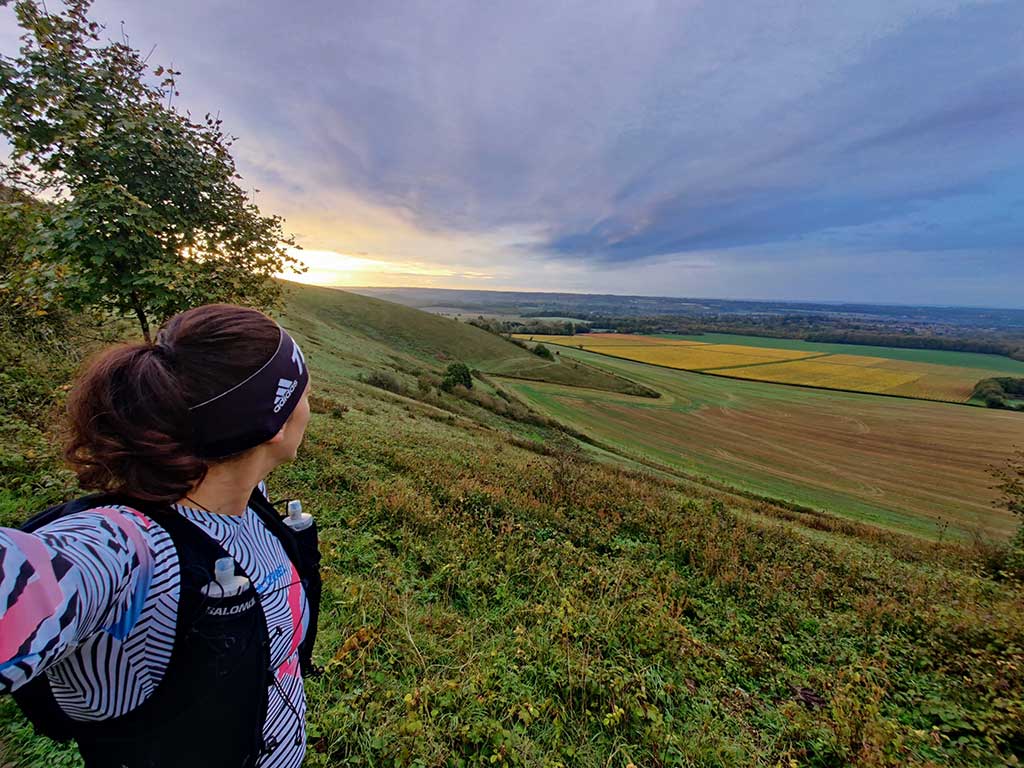
Training when you live in a city
There are two aspects to the preparation for a mountain race. One is running fitness obviously, but another key factor is being comfortable in mountain environments. OCC and races like UTS are not a natural progression from road running or even trail ultras (at least not quickly). They are serious mountain races with steep, long technical ascents and descents and potentially extreme weather. Having a strong background in hiking and moving over technical terrain, managing yourself and your kit in mountain conditions will definitely help. But how do you train for a mountain race? I live in London, I work full-time at a primary school and I am a single parent to two teenage boys. Life is busy and my work is demanding physically and emotionally. But I do LOVE running (not roads) so training does not feel like a chore. Having a coach who plans all my runs is helpful. I do not have to think about sessions. I just have to go do them. It has also held me accountable. I would not miss runs easily. Since 2021, I have been running 6 days a week with a mileage of 50 to 90km a week. I go to work in my running gear and run straight after work on my local roads and parks. The majority of my runs are at an easy conversational pace with small doses of hard effort thrown in. These are often hill intervals and strides. Long runs are on the weekend and I always head for the trails. The North Downs, Surrey Hills and the South Downs offer endless trails that pack a decent elevation. In the 6 months building towards OCC, I also squeezed in a few runs out on hills. Brecon Beacons, the Peak District - anywhere I could go for a day or two (often in half terms and school holidays) so I could condition my legs for long ascents and descents. My final big run was a 40km loop around Wasdale in the Lake District with 2500m elevation.
Yes, it sounds a lot! This is what worked and works for me but may be too much for someone else. It’s what I do and manage to keep things ticking along. It does take huge commitment and sacrifices but perhaps shows what may be possible. The key thing is you have got to want it!
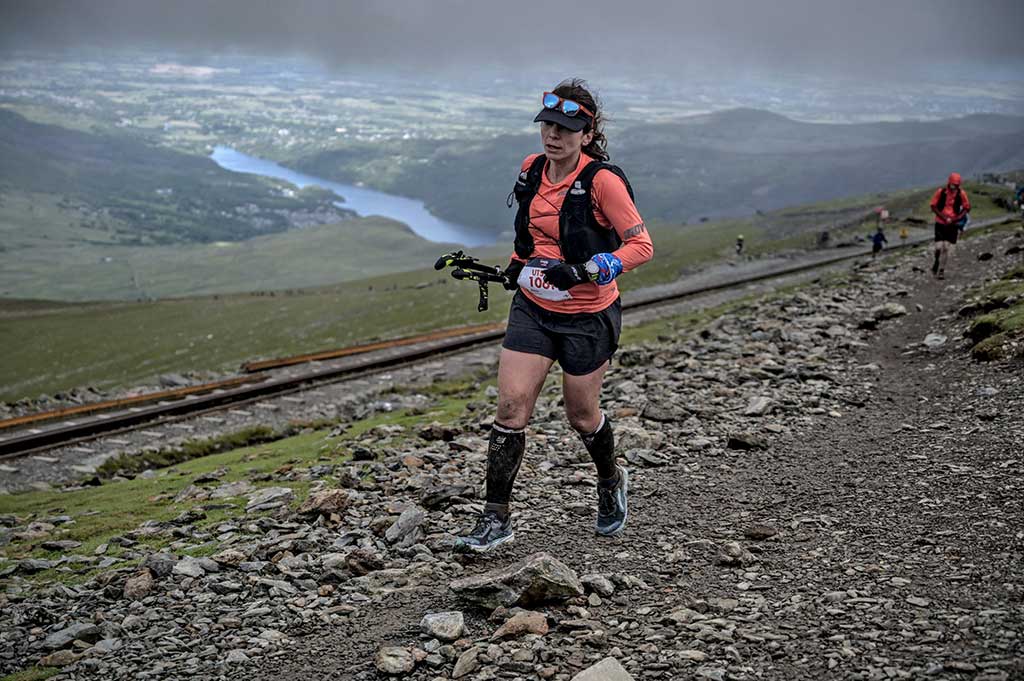
WHAT CAN HELP
Know your why
You have got to know your why when you run and do races. Don’t just make the outcome and that race your goal. I know at 43 I will probably never be on a podium. But I love to find out where my limit is. I want to give this my best shot and see what I can achieve. OCC was just a step along the way of going far and long in this ultra running life. I come from a background where freedom and a simple act of running is a privilege. For OCC, I soul-searched a lot. I wanted to make sure I don’t just get caught in the hype but have a fulfilling meaningful journey myself. I decided to dedicate every 10km of the race to someone. The first 10km was to women of Iran, and any women who can’t get to do such amazing things because of the society they live in. I wanted to make sure I knew how lucky I was to be at the start line (especially after battling foot tendonitis for 6 months before the race). The second 10km was dedicated to my mum and sister. The 3rd 10km is dedicated to my two boys. The 4th 10km is dedicated to my dad to whom I owe my love of the mountains. He is the one who took me out to the mountains and allowed me to dream my dreams despite being a girl living in Iran. I remembered him and his battle against cancer and that gave me strength in a stretch of the race where I knew I would start finding things hard. And the final stretch was to me and all my hard work and dedication. These feelings and thoughts of gratitude and appreciation, determination and will, are why I keep going back to each and every race I sign up for and definitely gave me the mental strength to work hard during the race as well as every training run. So don’t do it just for the sake of it! Don’t do it because it’s famous. Soul search and do it for a good reason and enjoy the journey.
Find your tribe
I don’t have family here. My running and climbing friends have become my family and my tribe. Science in psychology has proven again and again how a strong sense of ‘belonging’ leads to a sense of happiness, fulfilment and enhanced performance. This is where the Maverick race has done great. They have created a community around the races they organise. They care about the ‘why’ we run and they have a clear ‘why’ themselves. The MRP hobs have become the heart and soul of their community and this is how you can thrive, learn and share stories. There is so much to learn and be inspired from by being around people with similar goals plus it makes the logistics of getting to races easier as you can share drives to races and runs.
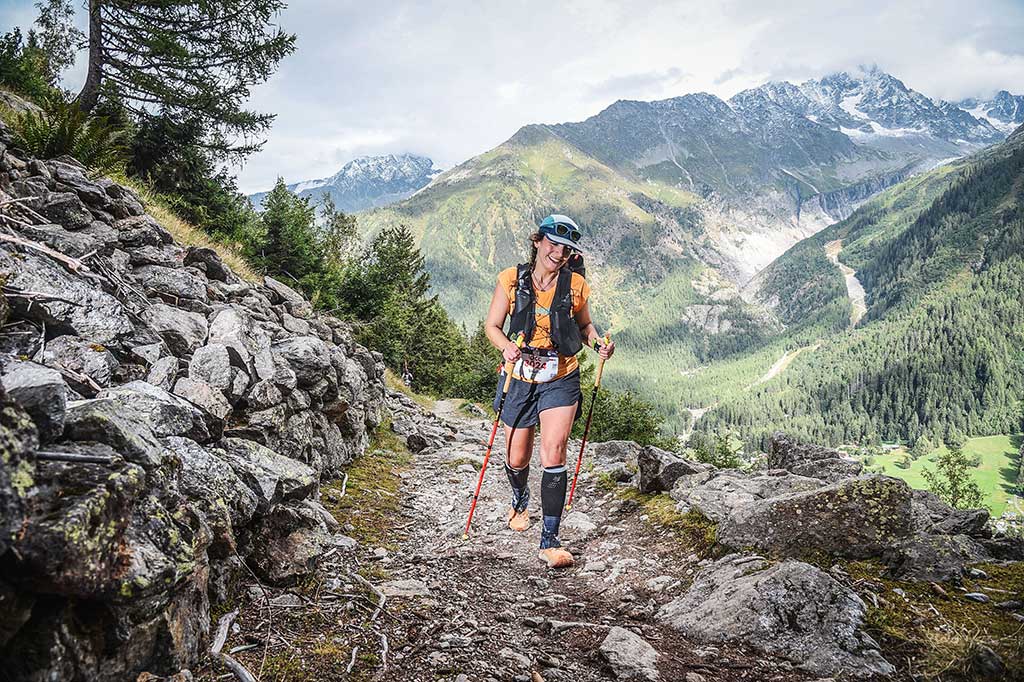
Choose races wisely
Not every race has to be a race. They can be long training runs. Choose a few races and order them in their importance and priority. Set your A goal. Then plan other races as training runs for the next one. This is where Maverick and their awesome range of races can be incredibly useful! I did quite a lot of them as most of my long Saturday runs are around 20-25km which fits nicely with the Original series and the X-series are good for pushing for longer distances as your B and C goals where you can test your kit, your nutrition, your pacing and strategies
Be smart with recovery
This is perhaps the most important but underrated aspect of training. So many of us chase marginal gains, the fancy gadgets, the apps, the data. But getting a good night's sleep, and eating and drinking well can be far more beneficial than fancy supplements and shakes. Get the basics right. Train smart. Run lots but also listen to your body and back off when it asks you to. Rest hard! Treat your body if you are demanding hard from it! Be Kind to your future self. At the end of the day, you are more than just a runner and this is something you are lucky to do! It doesn’t define you! And if it is really important to you, like it is to me, you want to be able to do it for a long time hopefully well into your 60s, 70s and even 80s! Focus on enjoying the journey, manage the stresses of life. So many of us train like athletes but have jobs, families and often can’t afford a coach, physio, nutritionist, etc so we have to be smart. Simple things like foam rolling, stretching if it feels good, and some strength and conditioning (This is a must – I do at least a 30-minute running-specific S&C per week) have to be part of your routine. I have put a balance cushion (for my niggly ankle), a foam roller, a ball to roll my foot on and a massage gun in my living room and use them every time I sit down to watch a bit of telly in the evenings. The periods of rest and what you do outside running is almost as important as the training runs themselves.
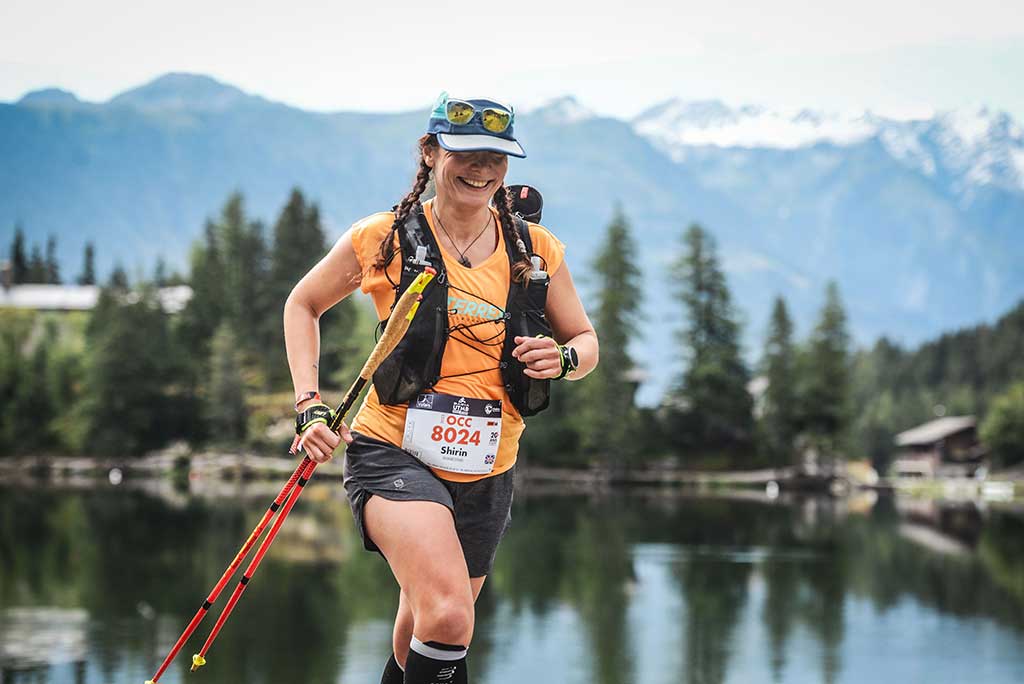
THE RACE ITSELF
I arrived at the race just being happy to be able to start. The rest was a bonus. I had prepared well though. Everything I did on race day was tested before (my kit, my nutrition). I had studied the map very well and knew exactly how far apart the checkpoints were and what lay in between. I had etched the cut-off times into my brain. I had written my ‘why’ and the ‘10km dedications’ on my forearm with a sharpie. I took it easy at the start and made sure I had enough in the tank towards the end.
Even though I started in the last wave (slower runners) and got caught in traffic going up the first climb and only made the first cut-off by 15 minutes, I made sure I started easy. I ran the downs well and that's where I made time gradually. I had 30-minute alerts on my watch to remind me to eat and I aimed for 60-90 grams of carbs per hour. I stayed focused and efficient (7 minutes was the max I spent at a Checkpoint where I used the toilet, filled my bottles and ate – there was no faffing).
I got to Argentière (41km in) 4 hours ahead of cut of time. I knew it was in the bag! I just had to keep plodding along and make sure I did not trip or twist an ankle on that final ‘tree-root and rock’ infested switchback descent that is La Flégère to Chamonix.
Entering the crowds, hearing my name and finally entering the finishing stretch and the finish arch will be one of the most memorable moments of my life particularly special as I was joined by my lovely friends; my tribe!
It was a sprint finish! I finished in 10 hours 12 minutes - 209th out of 436 women and 34th in my age category. And I am proud of that! Being a firm middle-pack runner in a race where the top 50 if not more are sponsored athletes, is a big personal achievement for me.
OCC is nails. But UTS was nails too. In comparison, I would even say UTS has more technical terrain. Bogs and scrambles (at least the 2022 route did)! OCC is all beautiful established trails. Rarely wet! Rarely muddy. What differentiates OCC is the length of the ascents and descents. One of the downhills was 12km long! It is hard to find anything like that in the UK to train on! But it is achievable. And for a day it will make you feel you are part of something as big as the Tour de France. Well, almost. But first I guess you have to decide if UTMB deserves your hard-earned money! There are plenty of other amazing races out there.
Shirin Shabestari
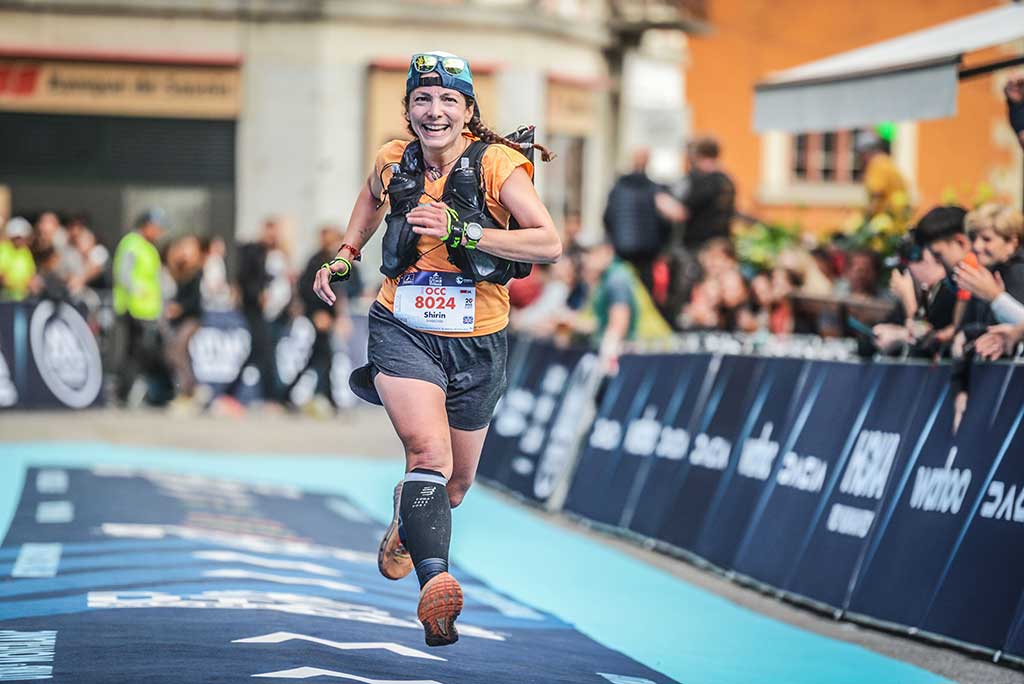
If you have found Shirin's amazing story inspiring and fancy experiencing the OCC trails without the competitive element, why not join us at our Maverick TENZING Trails Camp Chamonix OCC? You'll be supported by our team of mountain leaders and other runners and you'll be able to run at your pace. To find out more about our Camps, visit: Maverick TENZING Trails






